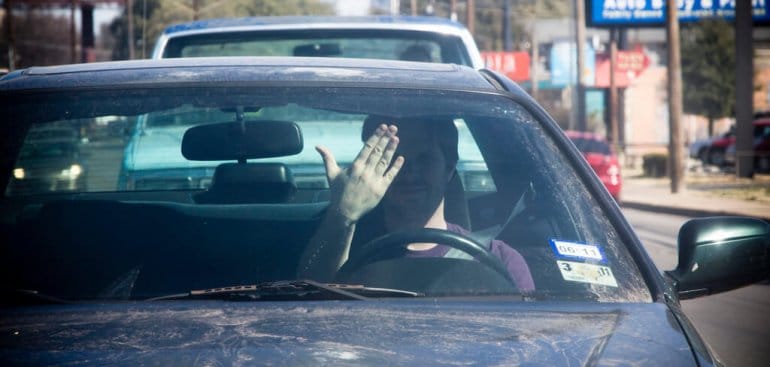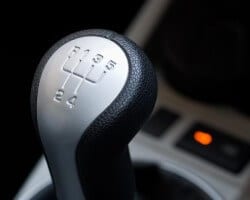Picture courtesy of Jon Collier, via Flickr Creative Commons.
You’ve just passed your driving test and you’re cruising around town, feeling pretty damn proud of your achievement, when your biggest driving fear happens. Sitting idle at a junction the lights turn green, you go to pull away and … you’ve stalled. Without your driving instructor there to guide you through the situation, panic rises as you struggle to restart your car and deal with impatient drivers behind you.
Sound familiar? We’ve put together this handy guide with everything you need to know about how to stop stalling your car, from why it happens to what to do when it next happens to you.
Why does a car stall?
Stalling a car is most common in manual cars, although automatic cars can stall if there is an underlying mechanical problem, this is due to the nature of how a manual car works. When the clutch is engaged, i.e. you are in gear and your foot is off of the clutch, two discs connect the engine with the transmission. Once the engine and transmission are connected they must have the same RPM (revolutions per minute), which is determined by what gear you are in. If your car begins to slow but you do not change down to a lower gear the engine will begin to struggle, which is when you experience the ‘bucking’ sensation experienced as the engine begins to stall. The same scenario applies when pulling away in your car from sitting idle. As you begin to engage the clutch there needs to be enough speed and acceleration in the car to ensure that the RPM of the engine and transmission is matched.
How to stop stalling your car
As you now know from the point discussed above, there are two scenarios in which you may find you stall your car, each with a different approach to stop your car from stalling:
When coming to a standstill:
- Gently press the brake pedal to begin slowing your car, then depress the clutch pedal to disengage the clutch (unless you are in first gear, in which case depress the clutch followed by the brake)
- Once the car has come to a standstill depress the clutch once again and put the car into first gear before pulling away again
When pulling away:
- Depress the clutch pedal with your left foot
- Select first gear
- Gently put pressure on the accelerator until revs reach around 1500
- Slowly lift pressure from the clutch pedal until you find the biting point
- When you are ready release the handbrake, continue slowly lifting the clutch pedal and putting pressure on the accelerator
- As the car starts moving slowly lift pressure completely from the clutch, keeping your right foot steady on the accelerator
What to do if you stall your car?
First things first, if you do stall your car try not to panic. Every driver does it, even those with years of experience can stall their car. It’s important that you keep your cool and get moving as quickly as possible. Think of a stall as a reset and follow the procedure below:
- Apply your handbrake
- Put your car into neutral and restart the engine
- Put your foot back on the clutch and put your car into first gear
- Check your mirrors and pull away again once it is safe to do so
Is stalling your car during your driving test a fault?
If you stall your car during your driving test it may not necessarily register as a fault, it depends entirely on how you deal with it and the impact on other road users. If you repeatedly stall the car it is likely to be marked as a fault, so it’s important you calmly restart the car as per the above procedure. If you stall on a busy road and are unable to restart the car quickly and safely, resulting in other road users being held up, it may be marked as a fault.
Whilst you’re learning to drive you are bound to stall your car several times as you learn more about how a car works. It’s during your lessons you should build your experience and learn how to deal with a stall quickly and safely. If your test is upcoming, it might be worth asking your instructor to help you deal with stall procedures if you haven’t yet experienced what happens and what you need to do.



1 Comment
Thank you very much.I find this information so helpful to me as Iam also a learners driver.